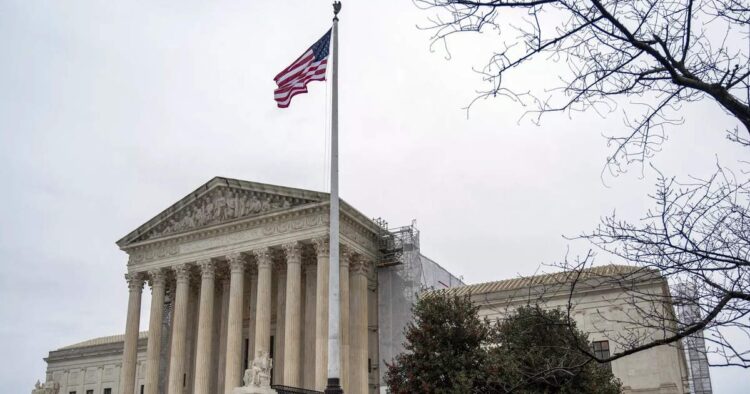The U.S. Supreme Court has revived a lawsuit filed by the National Rifle Association (NRA) against Maria Vullo, a former New York state official. The NRA accuses Vullo of using her power to pressure banks and insurers to stop doing business with the gun rights group. This lawsuit, which lower courts dismissed, will now be re-examined.
The NRA’s lawsuit stems from actions taken by Vullo, the superintendent of New York’s Department of Financial Services. After a tragic school shooting in Parkland, Florida, in 2018, Vullo urged financial institutions to consider the “reputational risks” of associating with gun rights groups like the NRA.
The NRA claims this was a form of unlawful retaliation against them for their advocacy of gun rights, arguing that Vullo’s actions violated their First Amendment rights to free speech.
Supreme Court’s Decision
In a unanimous 9-0 decision, Justice Sonia Sotomayor wrote that public officials cannot use their power to punish speech they do not like.
The court’s ruling emphasized that the First Amendment protects against government actions that seek to suppress speech, whether directly or through influencing private entities.
Impact on NRA’s Financial Services
The NRA alleges that Vullo’s actions led to a “blacklisting” campaign that deprived them of essential financial services. This, they argue, threatened their ability to continue their advocacy work.
ALSO READ: “Russia Prepares Retaliatory Measures Against EU Over Media Ban”
Vullo also fined insurance companies that offered NRA-endorsed products, which she claimed violated New York insurance laws. These fines totaled over $13 million and led to insurers stopping the sale of certain NRA-related products.
The Supreme Court’s ruling means that the case will return to lower courts for further examination of the NRA’s claims. The lower courts will now have to analyze whether Vullo’s actions were indeed coercive and violated the NRA’s free speech rights. In addition, the question of Vullo’s qualified immunity, which protects government officials from certain lawsuits, may be reconsidered.
David Cole, a lawyer with the American Civil Liberties Union, which represented the NRA, praised the ruling. He stated that it confirms government officials should not use their authority to target political groups they dislike.
Neal Katyal, representing Vullo, expressed disappointment but remained confident that Vullo’s qualified immunity would be upheld.
Interestingly, President Joe Biden’s administration supported the NRA’s right to pursue their lawsuit, despite Biden’s stance on gun control. This indicates a recognition of the importance of protecting free speech rights, even for groups with opposing views on gun control.
The Supreme Court is expected to rule on two other significant gun rights cases by the end of June. These involve challenges to federal laws regarding “bump stock” devices and the possession of guns by individuals under domestic violence restraining orders.
The Supreme Court’s decision to revive the NRA’s lawsuit underscores the importance of protecting free speech rights against government overreach. As the case returns to lower courts, it will be closely watched for its implications on the balance between regulatory authority and constitutional freedoms.

















Comments